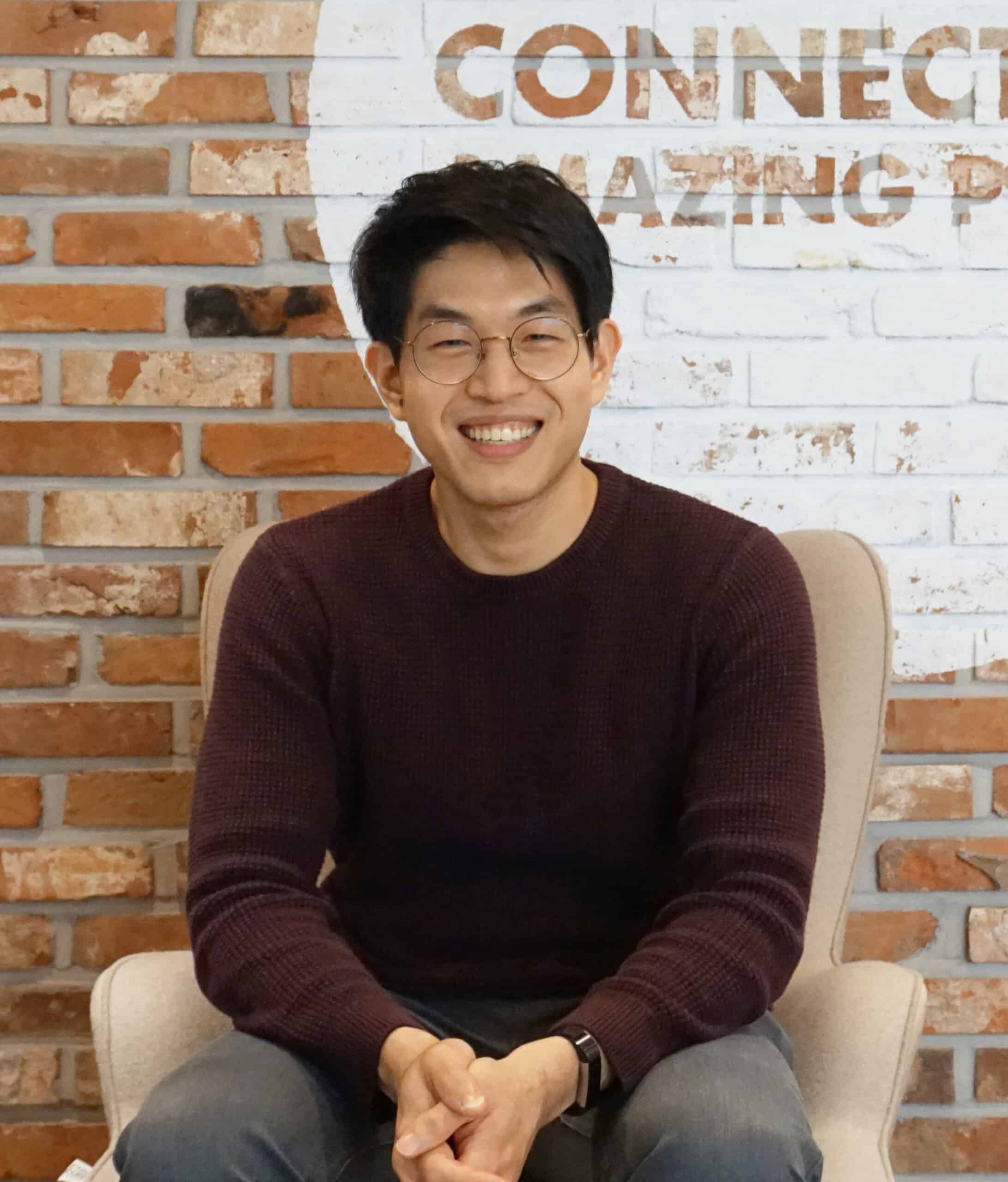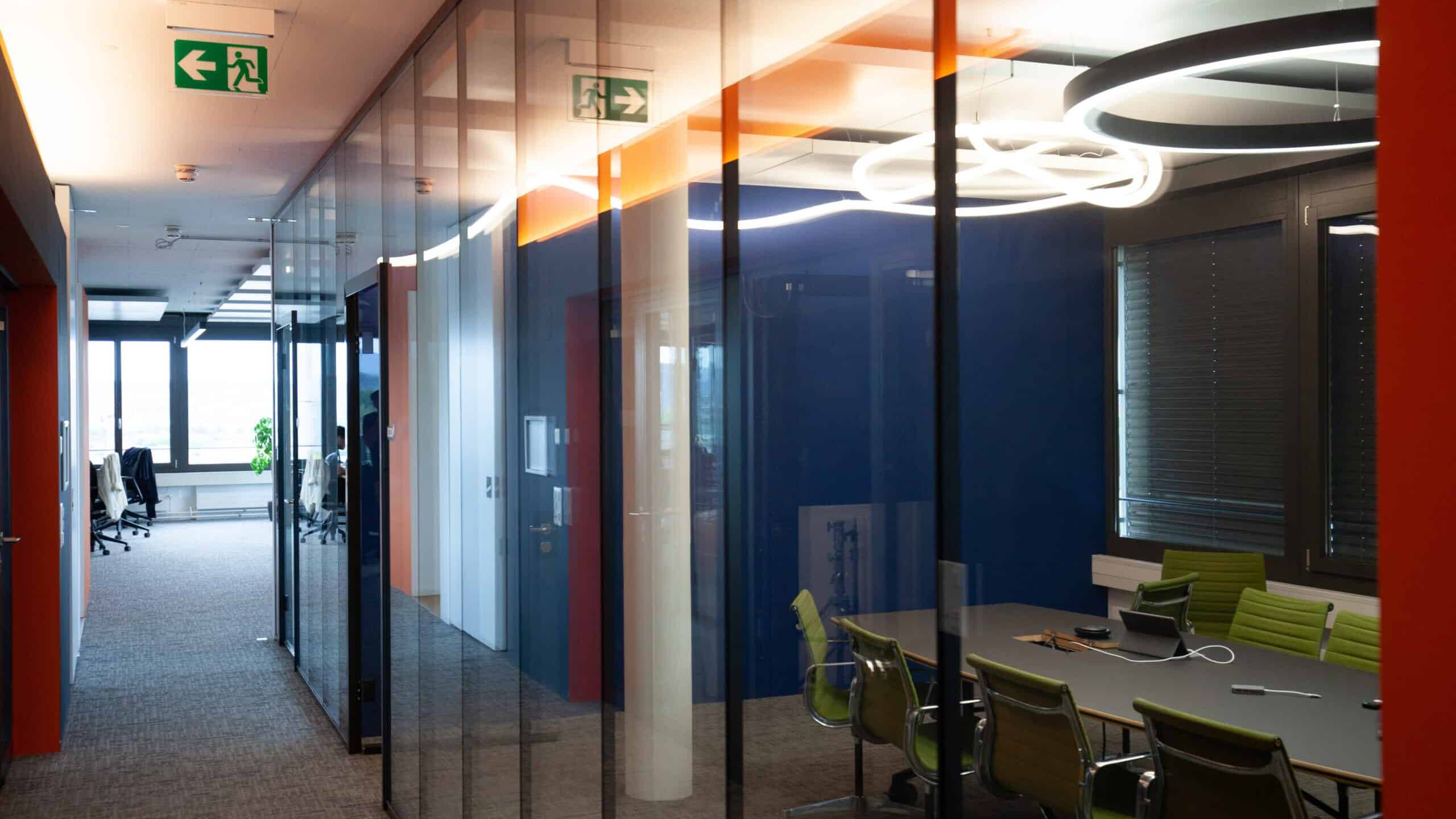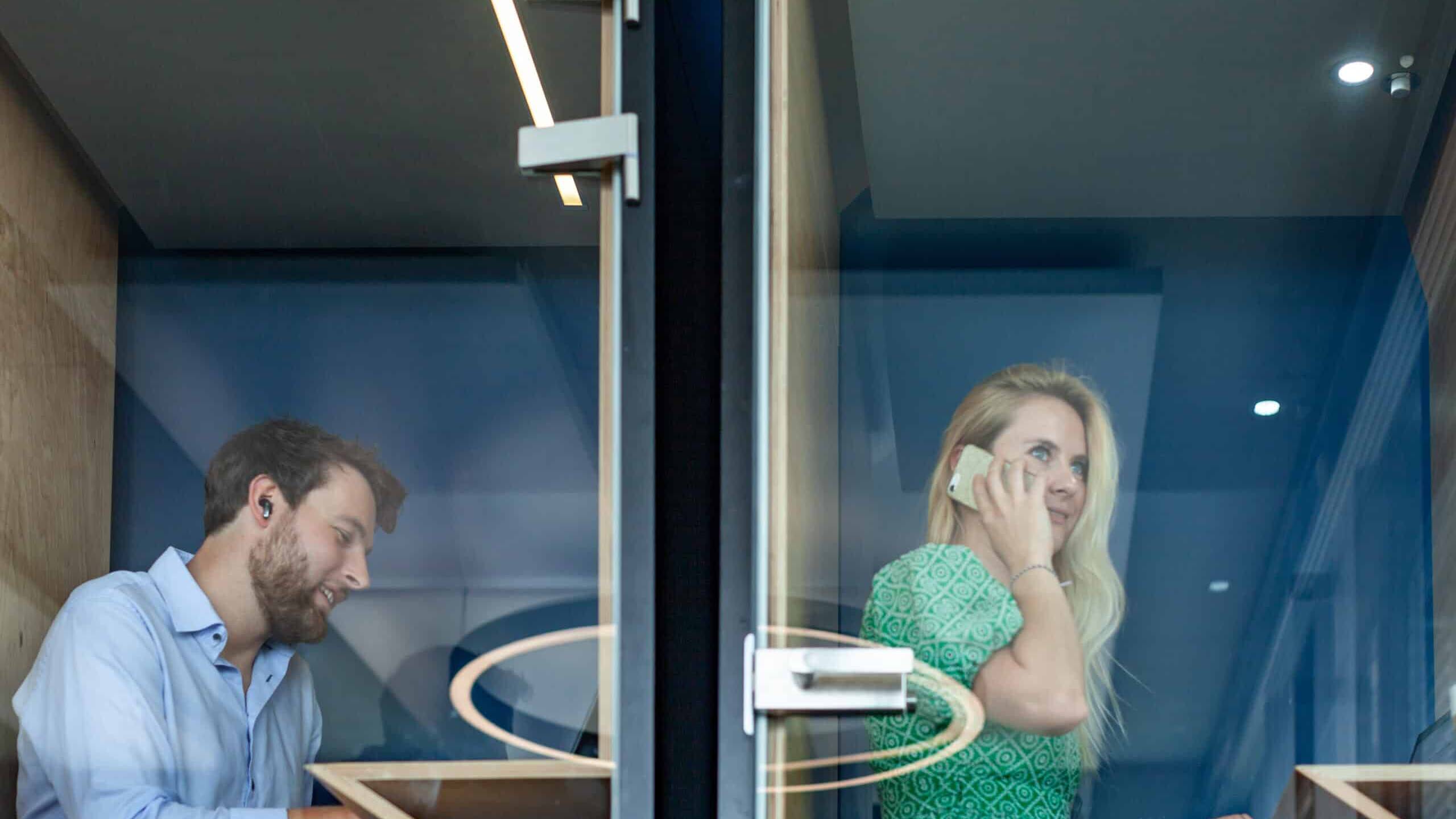South Korea has been undergoing an investment boom over the last ten years, peaking at USD 10 billion in 2021. The Korean government has been behind much of the funding, backing both venture firms and accelerators, but has recently announced a 40% slash to funding, leaving fledgling VCs in dire straits. In this interview, entrepreneur and former VC associate Andy Choi tells us what makes the Korean startup ecosystem unique and how VCs operate in it.

CEO and Co-Founder, QuotaBook
Andy Choi is the CEO and Co-Founder of QuotaBook, a fintech infrastructure startup based in Seoul, Korea that helps startups and investors sync crucial equity and corporate governance data through an online equity platform. Andy was an investment associate with Kakao Ventures, one of Korea’s leading venture firms, for over two years. He has also worked for over six years as a software engineer across multiple industries in Silicon Valley and South Korea. Andy has a bachelor’s and a master’s in electrical and computer engineering from Carnegie Mellon University.
You’re a software engineer by training, how did you get into venture capital?
I was a software engineer for nearly 7 years and during this time, I was already interested in the startup world. I joined a lot of networking events, meetups, hackathons and so on. As I dove deeper into the subject, I learnt there were other players besides the startups themselves, namely the venture capitalists that were also helping the startup ecosystem. At the time, I thought, founding a startup is a big step, but if someone joined a VC they could also position themselves as a supporter of founders working hard to build successful businesses. Being part of a VC also enables you to widen your network vastly. Because of all these reasons, I became interested in venture capital.
I was then lucky enough to be offered an internship at one of South Korea’s biggest early stage venture capital firms, Kakao Ventures. I then went on to finish my studies and started working full-time in Silicon Valley. When an associate position later opened at Kakao Ventures, I decided to apply and when I got the job, I moved back to Korea and became part of their investment team.
You left Kakao Ventures to found your own startup, QuotaBook. What made you decide to take that step?
Despite my interest in the startup world, I had never actually thought about founding a startup myself. The fact that I did was something completely unexpected. While working at Kakao Ventures, we invested in some US companies and they started sending out their cap tables and securities through Carta, a well-established equity and financial online platform in the US. I was quite surprised when I came into contact with it because, back then, in Korea, everyone was managing their equities, shares and stock options mostly manually, through Excel sheets and even stamped papers. The process was outdated and no one was thinking about changing it because it was just considered the norm.
As soon as I saw Carta, I realized how many problems it could solve both on the investor and startup side. I wanted us to use it internally, but it turned out Carta is deeply rooted and systemized around US financial laws and guidelines so it wouldn’t really work for the Korean market. But while vetting through that process, I noticed many founders and investors in Korea did not know this type of software existed. And once they heard about it, they became very interested in it and could immediately see the benefits. I realized that no one was doing it in Korea and I had a great network for it. Because of all this, I thought it was a good enough bet and decided to start a business.
What does the startup scene in Korea look like?
Ten years ago, there weren’t many early stage VCs around. There wasn’t much interest in startups in general as there were very few success cases. One of the main reasons for it was that most young people wanted careers in big companies, but that’s been slowly changing. There are more startup-focused events and programs led by government institutions. The Tech Incubator Program for Start-ups (TIPS), for example, was a program through which the government matched the funds invested by government-accredited VCs into startups.
There’s also been a big shift in mindset. For developers and recent graduates, working in a startup is now considered a better career choice because we have startup unicorns like Toss and Market Kurly that have made it big. The number of VCs has also been growing. If ten years ago there were less than ten early stage VCs in the whole country, now 10 to 30 new VCs are being founded every year. The amount of money being invested has also been continually growing for the last five years, reaching its height with USD 10 billion in 2021.
How do VCs get their funding in Korea?
This is a bit different from what you might see in Europe or the US. In Korea, most of the VC funding comes from government institutions. There is this fund of funds being managed by the Ministry of SMEs and Startups. VCs can apply for it through the ministry’s various institutions. I would say these funds cover at least 25% of all VC money across the country. At its height, it was more than 50%. The new government is trying to change that. They want nongovernmental entities like banks and even corporations to take the lead.

Invest in Startups
As one of Europe’s most active venture capital investors, we grant qualified private investors access to top-tier European startups. With investments starting at EUR/CHF 10’000, you can build your own tailored portfolio over time and diversify across stages and sectors.
The Korean government announced it would be slashing the fund of funds budget by 40% starting in 2023. What does that mean for all the VCs that have been relying on it?
The downsizing of the fund of funds started even before the current government. One of the bigger fund of funds called Korea Venture Investment Corporation was allocated $1 billion in 2020. In 2021, it was cut down to $500 million. This further cut will bring it down even lower to $300 million. Unfortunately, these cuts have also been scaring the nongovernmental institutions so we already have VCs that are struggling to raise money for new funds. But we’ll only start seeing the real impact of the cuts in the coming year.
Personally, I think that both on the VC and the startup side, we’re going to see who the real talents are. Warren Buffett once said only when the tide goes out do you learn who has been swimming naked. And I think that’s what’s going to happen in Korea. On the startup side, we’re already seeing devaluations and people struggling with funding. On the VC side, there are just so many investment firms right now, but the people who can actually pour money into the VCs are limited and they’re cautious about it. The VCs will need to show that they can make good deals, not just raise funds. We’re already seeing an increase in due diligence, a restraint on the VCs’ side from making new investments too hastily.
What fields are the most successful in the startup scene in Korea?
Until now, most of our unicorns have come from the IT consumer space so things like e-commerce, delivery apps or social platforms.
Another unique aspect of the Korean VC scene is that many of the big corporations like Samsung, Kakao and Naver have their own venture funds. How does that influence the startup ecosystem?
From an ecosystem point of view, I think having more players who are willing to finance the startups is something good. Because in the long term, we don’t want to be hugely dependent on the government since it can change its stance at any point. Having more players come in, whether it’s corporations or wealthy individuals, is a healthier way of maintaining the startup and VC ecosystem. Having a direct connection to these big companies also creates more exit and partnership opportunities for the startups themselves.
How much of a say do these conglomerates have in the development of the startups they invest in?
It depends on how the venture capital arms started out within those companies. For example, Samsung has Samsung Ventures, but also has their C-Lab program which is a place where their employees can start new internal projects. If these projects go well, then Samsung lets them spin off as a new company. The startups that are created in the C-Lab are also not restricted to the industries Samsung is a leader in. There were even startups in industries like cosmetics that came out of it. I think Samsung gives C-Lab companies a high degree of freedom.
Where do entrepreneurs come from in Korea?
Most entrepreneurs come out of corporations like Samsung, Kakao, Naver, but increasingly also from the new wave of unicorns that have popped up in recent years and includes companies such as Hyperconnect, Coupang or Daangn Market. We’re also seeing quite a lot of entrepreneurs who are fresh graduates from universities like Seoul National University or the Korea Advanced Institute of Science and Technology that have very good technical programs. Many universities also have their own accelerator programs that mostly financially support startups created by the university’s professors.
What is the source of funding for these accelerators?
A good amount of it comes from the universities themselves, but they also have external partners. Seoul National University, for example, has its own investment arm. They raise money and create their own funds. They use them to invest not only in these professor-led startups but also in startups in the general market.
What do you think are the biggest differences between the European and the Korean startup ecosystems?
There is a big difference between how laws are formulated in Europe and Korea. In Europe, laws tend to prohibit and restrict A to Z. In Korea, it’s the other way around. The laws only allow A to Z. If you want to do something new in Europe, unless it’s something that the government prohibits, you can do anything you want. In Korea, you can only do those things which are explicitly allowed by the law which is usually only one thing.
Because of this, for example, Simple Agreements for Future Equity (SAFEs), a type of convertible loan that has already become quite common since they were first introduced nearly 10 years ago in the US, were actually illegal in Korea until a year ago because there was no law to support them. If you have to wait around for legislation to be introduced to allow what you are doing, it can obviously affect the speed of innovation.
Written by
WITH US, YOU CANCO-INVEST IN DEEP TECH STARTUPS

Verve's investor network
With annual investments of EUR 60-70 mio, we belong to the top 10% most active startup investors in Europe. We therefore get you into competitive financing rounds alongside other world-class venture capital funds.
We empower you to build your individual portfolio.
More News
24.01.2023
Startups still get sold in a downturn
M&A expert Andrew Bright explains in this interview what founders can do to maximize their chances of a successful exit, what they should avoid, and why the number of exits doesn’t go down dramatically in tough times.
10.01.2023
A look from the inside at the decision-making of a venture fund
With his experience as an entrepreneur, executive, board member, and investor, Philipp Ries brings an external view to the discussions of the investment committee of the Verve Venture Fund. In this interview, he talks about his career and the work associated with taking decisions about investing in startups.
09.01.2023
Why students should consider a career in Venture Capital
In this article, we explain who should consider a career in venture capital and give students a few tips on how to land their first position. Curiosity is more important than what degree you pursue.
Startups,Innovation andVenture Capital
Sign up to receive our weekly newsletter and learn about investing in technologies that are changing the world.




